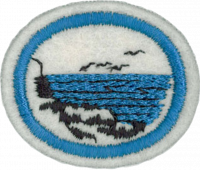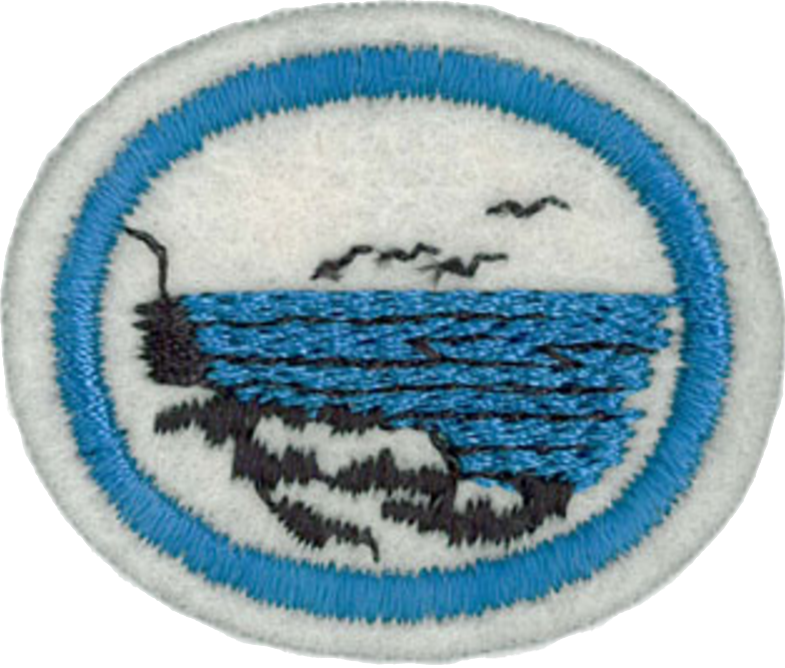Difference between revisions of "AY Honors/Marine Algae/Requirements"
Jomegat bot (talk | contribs) (Bot: Automated import of articles *** existing text overwritten ***) |
m (- Category of Honor Requirements) |
||
| (8 intermediate revisions by 2 users not shown) | |||
| Line 1: | Line 1: | ||
| − | + | {{HonorSubpage}} | |
| − | |||
| − | |||
| − | |||
| − | |||
| + | <section begin=Body /> | ||
| − | < | + | <b>1. <section begin=req1 /><noinclude><translate><!--T:1--> |
| − | + | </noinclude>What is marine algae? | |
| − | + | <noinclude></translate></noinclude><section end=req1 /></b> | |
| + | <b>2. <section begin=req2 /><noinclude><translate><!--T:2--> | ||
| + | </noinclude>Where is it found? | ||
| + | <noinclude></translate></noinclude><section end=req2 /></b> | ||
| − | < | + | <b>3. <section begin=req3 /><noinclude><translate><!--T:3--> |
| − | + | </noinclude>What is the organ of attachment to the substratum called? How does it differ from a true root? | |
| − | What is the organ of attachment to the substratum called? How does it differ from a true root? | + | <noinclude></translate></noinclude><section end=req3 /></b> |
| + | <b>4. <section begin=req4 /><noinclude><translate><!--T:4--> | ||
| + | </noinclude>How does size vary in marine algae? | ||
| + | <noinclude></translate></noinclude><section end=req4 /></b> | ||
| − | < | + | <b>5. <section begin=req5 /><noinclude><translate><!--T:5--> |
| − | + | </noinclude>Name the four groups of marine algae, indicating opposite the name of each group whether it is unicellular, multicellular, or both. | |
| − | + | <noinclude></translate></noinclude><section end=req5 /></b> | |
| + | <b>6. <section begin=req6 /><noinclude><translate><!--T:6--> | ||
| + | </noinclude>Is most green algae found in fresh or salt water? | ||
| + | <noinclude></translate></noinclude><section end=req6 /></b> | ||
| − | </translate>< | + | <b>7. <section begin=req7 /><noinclude><translate><!--T:7--> |
| − | + | </noinclude>What are diatoms? | |
| − | + | <noinclude></translate></noinclude><section end=req7 /></b> | |
| + | <b>8. <section begin=req8 /><noinclude><translate><!--T:8--> | ||
| + | </noinclude>Where does algae grow-the polar, temperate, or tropic zone? | ||
| + | <noinclude></translate></noinclude><section end=req8 /></b> | ||
| − | < | + | <b>9. <section begin=req9 /><noinclude><translate><!--T:9--> |
| − | + | </noinclude>Where is brown algae most invariably found-in fresh or salt water? | |
| − | + | <noinclude></translate></noinclude><section end=req9 /></b> | |
| + | <b>10. <section begin=req10 /><noinclude><translate><!--T:10--> | ||
| + | </noinclude>What is the greatest depth that algae grows in the ocean? Why can it not grow in deeper water? | ||
| + | <noinclude></translate></noinclude><section end=req10 /></b> | ||
| − | < | + | <b>11. <section begin=req11 /><noinclude><translate><!--T:11--> |
| − | + | </noinclude>Name the three parts of a large kelp. How do they compare to the leaf, stem, and root of a plant? | |
| − | + | <noinclude></translate></noinclude><section end=req11 /></b> | |
| + | <b>12. <section begin=req12 /><noinclude><translate><!--T:12--> | ||
| + | </noinclude>Describe the two ways that algae reproduce. | ||
| + | <noinclude></translate></noinclude><section end=req12 /></b> | ||
| − | < | + | <b>13. <section begin=req13 /><noinclude><translate><!--T:13--> |
| − | + | </noinclude>What are some of the commercial values of algae? Give at least one for each group. | |
| − | + | <noinclude></translate></noinclude><section end=req13 /></b> | |
| + | <section begin=challenge /> | ||
| + | <b>14. <section begin=req14 /><noinclude><translate><!--T:14--> | ||
| + | </noinclude>Make a collection of at least twenty specimen of marine algae properly identified, mounted, and labeled. There must be at least four specimens from the Green group, eight from the Brown group, and eight from the Red group. | ||
| + | <noinclude></translate></noinclude><section end=req14 /></b> | ||
| + | <section end=challenge /> | ||
| − | < | + | <b>15. <section begin=req15 /><noinclude><translate><!--T:15--> |
| − | + | </noinclude>Be able to identify by generic name at least ten types of marine algae. | |
| − | + | <noinclude></translate></noinclude><section end=req15 /></b> | |
| − | + | <section end=Body /> | |
| − | |||
| − | < | ||
| − | |||
| − | |||
| − | |||
| − | |||
| − | |||
| − | |||
| − | |||
| − | |||
| − | |||
| − | |||
| − | |||
| − | |||
| − | |||
| − | |||
| − | |||
| − | |||
| − | |||
| − | |||
| − | |||
| − | < | ||
| − | |||
| − | |||
| − | |||
| − | |||
| − | </ | ||
| − | |||
| − | |||
| − | |||
| − | |||
| − | |||
| − | |||
| − | |||
Latest revision as of 19:07, 21 July 2022
1. What is marine algae?
2. Where is it found?
3. What is the organ of attachment to the substratum called? How does it differ from a true root?
4. How does size vary in marine algae?
5. Name the four groups of marine algae, indicating opposite the name of each group whether it is unicellular, multicellular, or both.
6. Is most green algae found in fresh or salt water?
7. What are diatoms?
8. Where does algae grow-the polar, temperate, or tropic zone?
9. Where is brown algae most invariably found-in fresh or salt water?
10. What is the greatest depth that algae grows in the ocean? Why can it not grow in deeper water?
11. Name the three parts of a large kelp. How do they compare to the leaf, stem, and root of a plant?
12. Describe the two ways that algae reproduce.
13. What are some of the commercial values of algae? Give at least one for each group.
14. Make a collection of at least twenty specimen of marine algae properly identified, mounted, and labeled. There must be at least four specimens from the Green group, eight from the Brown group, and eight from the Red group.
15. Be able to identify by generic name at least ten types of marine algae.


